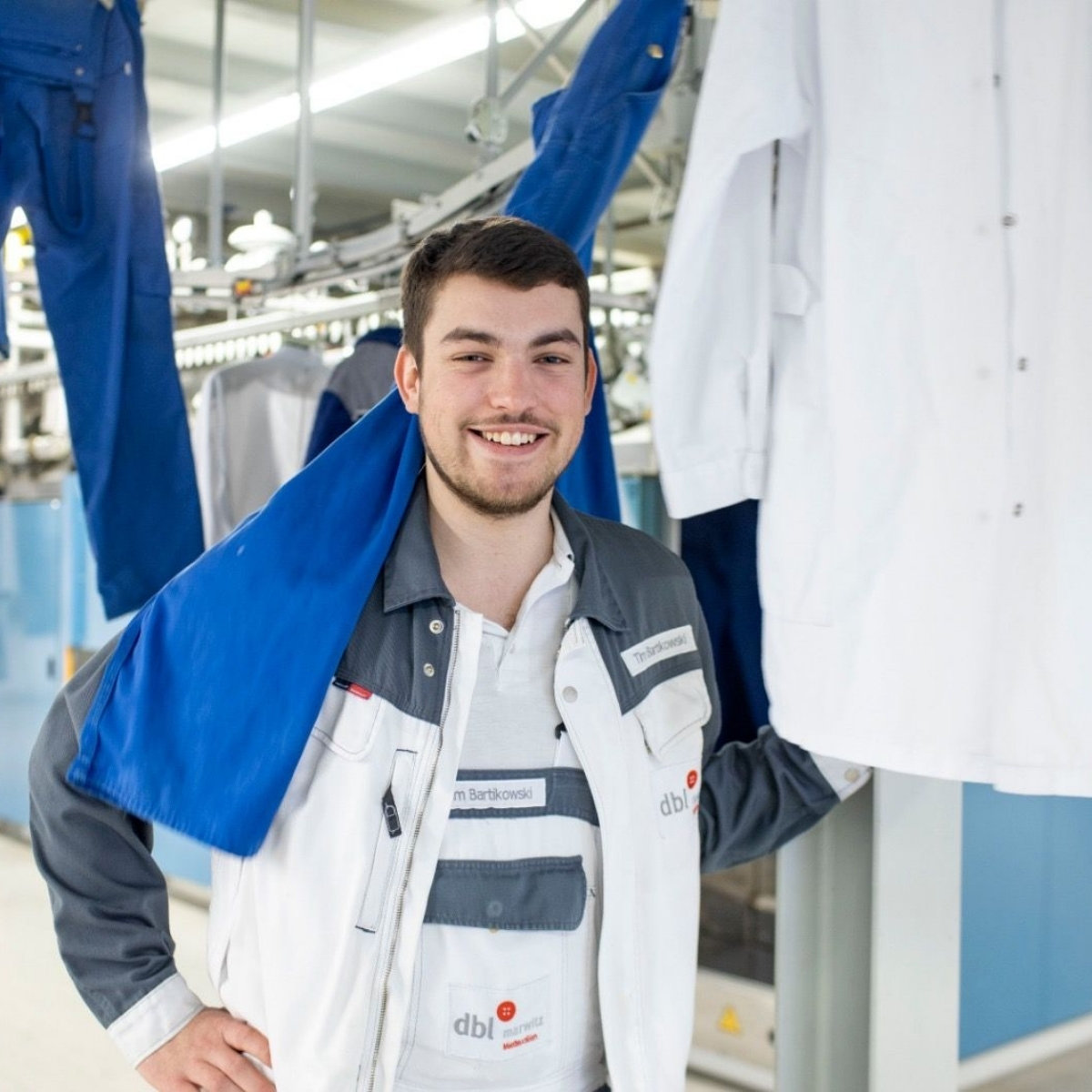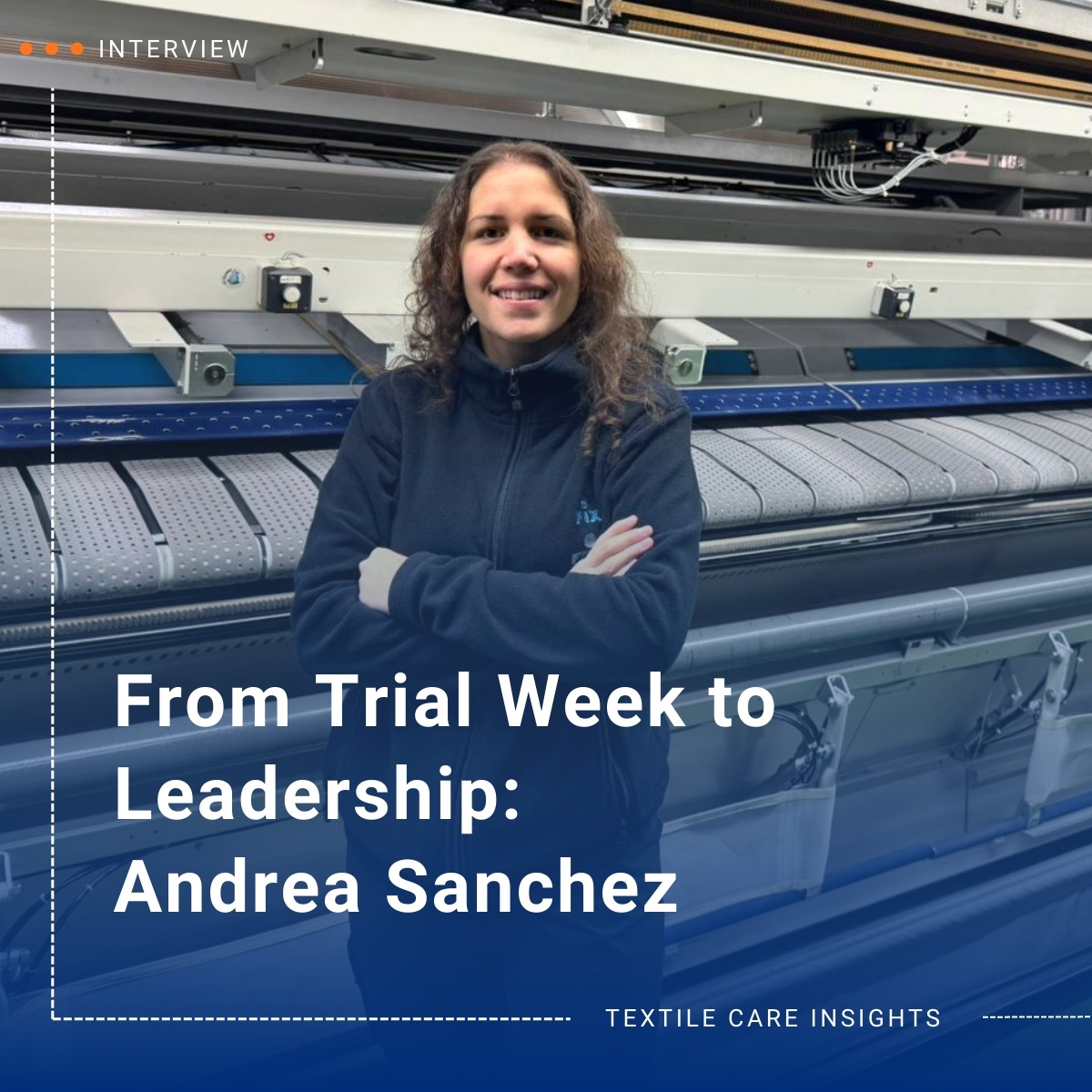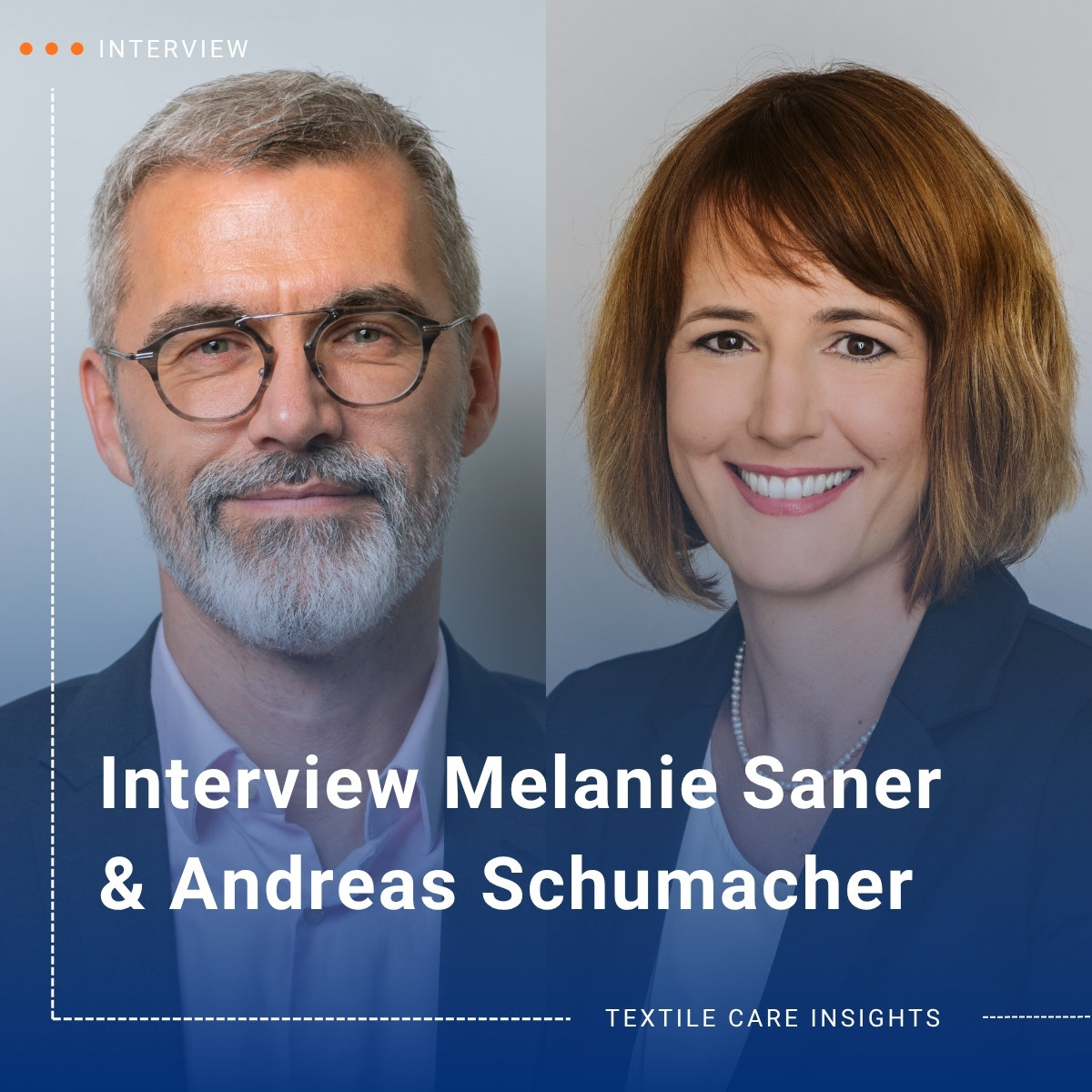Reading time: 7 minutes
When Tim Bartikowski was still at school, he had no idea what he wanted to do later on. “That’s just how it is when you’re 15: everything seems more important than school and getting your diploma,” he says in retrospect, laughing. Like many people at that age, the now 31-year-old says he was “rather aimless” at the time. His school report reflects that. After finishing lower secondary school, he wanted to start an apprenticeship, but couldn’t find a profession that appealed to him. To earn some money, he applied to a temporary employment agency in 2014. They told him: “Go to Marwitz on Monday – they’re always looking for people.” The laundry company W. Marwitz Textilpflege in Lüneburg is well-known in the region – it is part of the DBL network and a major textile service provider in northern Germany.
“Textile cleaner? Doesn’t sound that exciting.”
At Marwitz, he is first assigned to the wash line, where he feeds pillowcases, sheets and duvet covers into the ironer. “Apparently, I didn’t do such a bad job,” he says. Because after only a short time, the then operations manager at Marwitz approaches him and asks whether he would like to do an apprenticeship at the company. Two training options are put on the table: machine and plant operator or textile cleaner. Bartikowski recalls: “I still remember thinking at that moment: ‘Textile cleaner? Doesn’t sound that exciting.’” At the same time, he already feels comfortable at Marwitz. Since he now also knows how much plant technology is involved in a modern laundry, he asks himself: “Maybe it’s just the job title ‘textile cleaner’ that sounds boring? Is there more to it?” So he gives himself a push: “Come on, let’s do it!” When he looks back on that moment today, he is sure: “If I hadn’t already worked at Marwitz and seen what a laundry looks like, I wouldn’t have been interested in becoming a textile cleaner.”
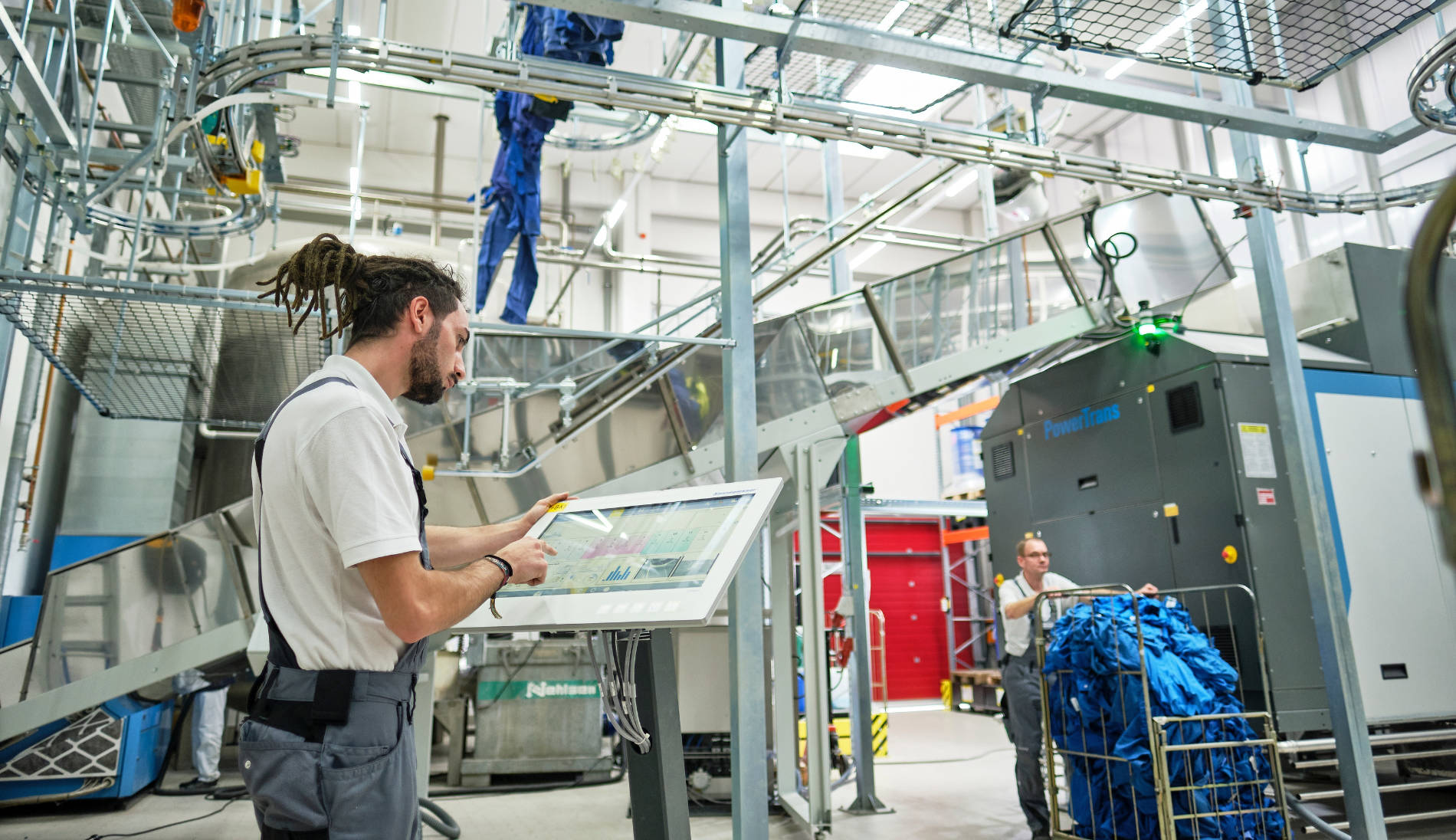
Training: From “not that exciting” to “cool!”
In 2015, he begins his apprenticeship. For the next three years, this means four days a week in the laundry and one day of block instruction. He attends this at the Anna-Siemsen-Schule in Hanover – one of only five vocational schools left in Germany offering the textile cleaner apprenticeship. Every Tuesday, he boards the train at six in the morning, travels one and a half hours to Hanover, and returns around 5:30 p.m. “That was the longest day of the week,” Bartikowski recalls. His initial scepticism towards the textile cleaner apprenticeship begins to fade early on: “I was surprised by how many professional fields are involved.”
For example, there’s chemistry: he learns what detergents are made of and how they work. Physics also plays a role, as he needs to understand what happens inside a washing machine and how water, heating and steam interact. In fibre studies, he learns how different textile fibres such as cotton, polyester and blends behave in various media. Logistics is also part of the curriculum, since precise route planning is essential to ensure that the cleaned textiles are delivered back to customers on time. He also needs to understand modern sorting technology. “I’m not an IT specialist, but you do need to know roughly how laundry is sorted based on data,” Bartikowski explains. Suddenly he realises: there’s more to the job than one might think. “Yes, it’s washing laundry – but on a large and cool scale!”
Full support during the master craftsman training
In 2018, he completes his apprenticeship as a skilled worker. Marwitz now entrusts him with more and more responsibility, making him team leader in the washhouse and assistant to the operations management. At that point, the company already knows that the operations manager who had inspired Bartikowski to train as a textile cleaner will soon be retiring. They see his successor in Bartikowski. So, the management sits down with him and decides that he should go on to obtain his master craftsman’s qualification in order to deepen his commercial and business management knowledge.
The master craftsman training begins in early 2020 and, according to Bartikowski, takes place “everywhere and nowhere.” He completes the individual parts – commercial section, instructor qualification, practical and theoretical specialisation – in three different cities. During this time, Marwitz supports its future operations manager to the fullest, essentially granting him leave for his master training while continuing to pay his regular salary. “Instead of going to work, I went to the master classes back then,” says Bartikowski. The company also covers accommodation and travel expenses – even when Bartikowski lives in a hotel in Frankfurt am Main for almost three months, where he attends the School of Clothing and Fashion for the theoretical and practical parts of his master training. “I know not every company can offer that, but I’m glad and grateful that they made me feel back then: ‘Focus on your master and get it done in one go, without evening classes,’” says Bartikowski. After a year, he completes his master craftsman’s qualification in 2021 and soon after, as planned, takes over the position of operations manager.
No day is ever the same
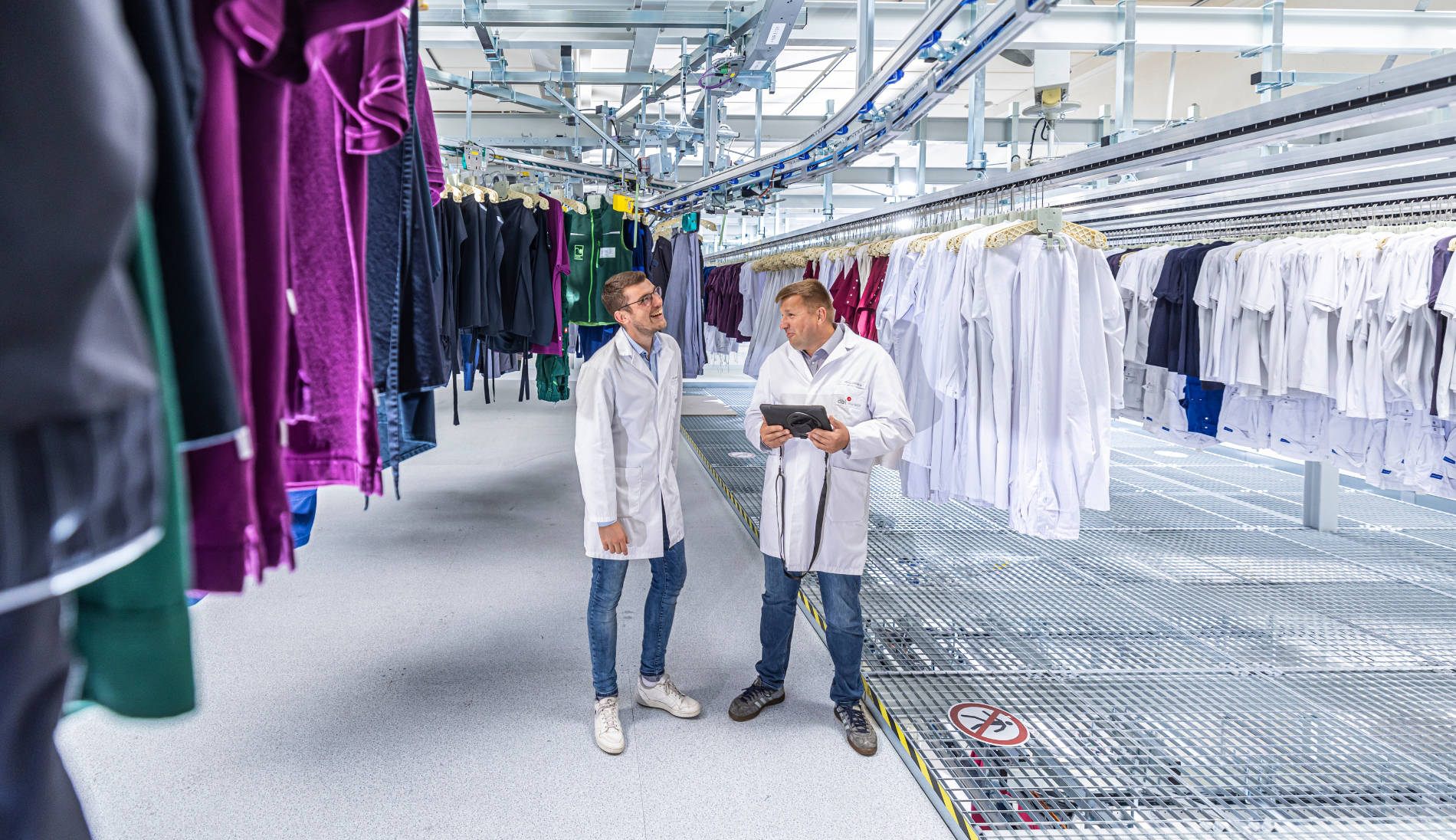
What excites him most about his working day today? “Definitely the variety! Every day, it feels like 5,000 things come at you that you can really get stuck into,” he enthuses – and lists them: setting washing machines, monitoring almost 40 wash programmes, organising administrative processes, planning the optimal route for up to 80,000 laundry items per day from A to B, replying to emails from colleagues and customers, coordinating staff planning for 60 people, conducting hazardous substance training sessions, attending complaint meetings, and so on and so on.
Bartikowski is also the contact person for things that have nothing at all to do with laundry: “Sometimes people come with personal questions, and there’s the occasional dispute to settle. But that’s just how it is anywhere people work together,” he says pragmatically.
“Many are born into the washing machine”
When asked what advice he would give to companies desperately looking for young talent, based on his own experience, he answers honestly: “I don’t know.” After a short pause, he adds: “From my point of view, there are really only two ways into textile care: either you stumble into it by chance, like I did, or you want to take over your parents’ business one day.” In textile care, many people, as Bartikowski puts it, “are born into the washing machine.” He has personally never experienced anyone seeing a job ad for “textile cleaner” and thinking, “Wow, I’m going to apply for that.” He says: “Many don’t know what’s behind the job title – laundry doesn’t exactly sound sexy when you read it on paper.”
“So, a washerwoman?”
He knows all too well about the image problem: when he once mentioned in a conversation with tradesmen that he is a trained textile cleaner, one of them made a crude joke: “So, a washerwoman?” Bartikowski takes such remarks with humour and prefers to explain calmly that “I don’t stand by the river with a washboard scrubbing laundry, but work in a varied and modern industrial profession.” At the same time, he also receives a lot of positive feedback: “Anyone who works in a trade usually knows who cleans their workwear.” Should the job title “textile cleaner” perhaps be changed? Bartikowski thinks for a moment. “I don’t know if that’s the solution, but sure, in principle we’re more like process technologists for professional textile care.” One thing is certain for him: enthusiasm for the profession of textile cleaner deserves to be much more in the spotlight. But how?
“That’s not how I imagined a laundry to be”
He recalls an online company tour via video organised by the Chamber of Commerce during the coronavirus pandemic. “One of us just walked through the laundry with a camera and talked freely about what we do here.” With surprising success: shortly afterwards, a young man who had seen the online tour applied to the company. He later completed an apprenticeship at Marwitz. Bartikowski also managed to inspire a friend to join the textile care industry. “He was as aimless as I was,” says the young operations manager with a laugh. After showing his friend the laundry, the latter also started an apprenticeship as a textile cleaner at Marwitz.
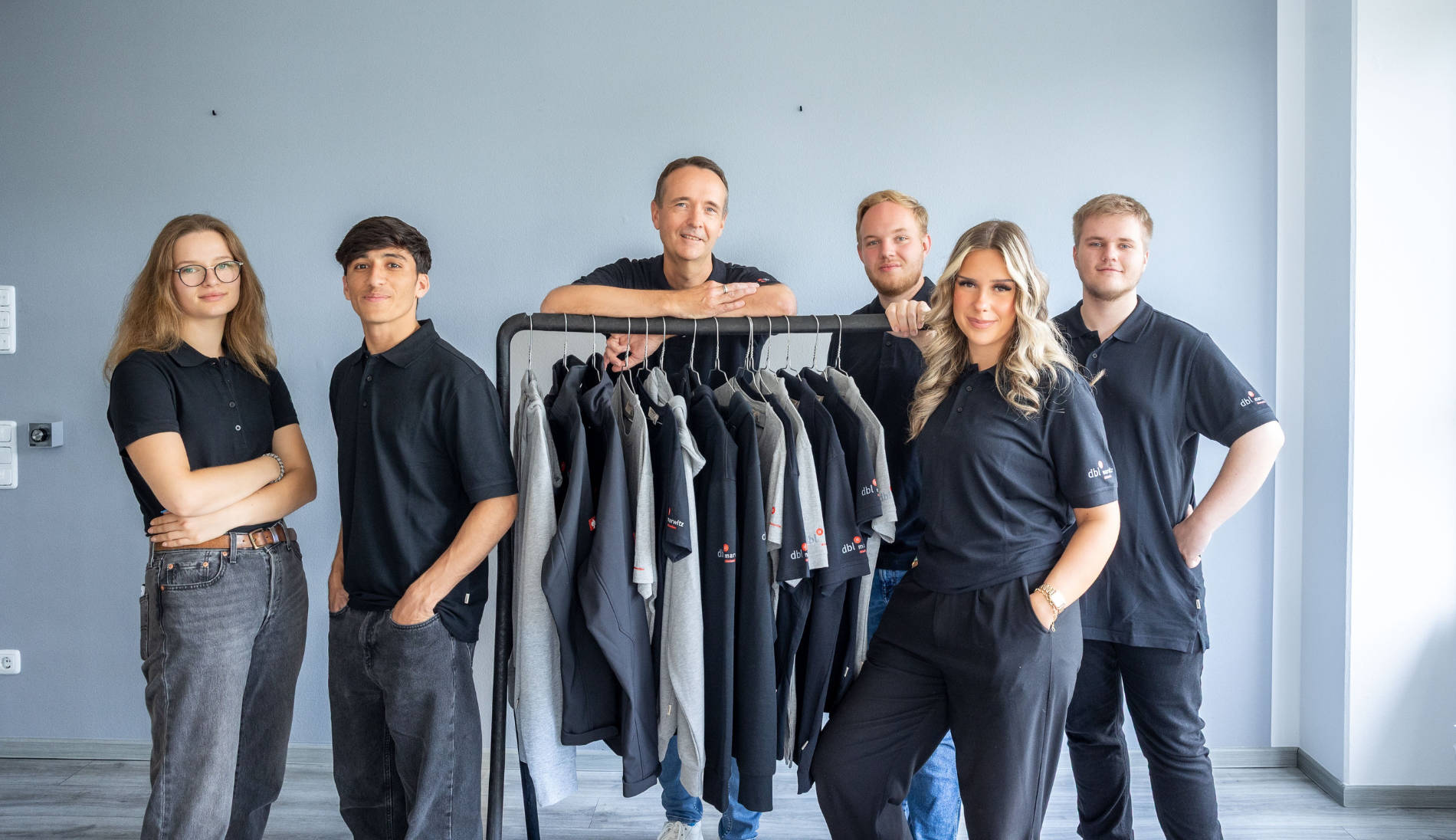
That’s why Bartikowski is firmly convinced: “The more you see and understand the processes in a laundry – not just the machines, but everything around them – the more you become convinced of the industry.” For that reason, he invites everyone who applies to Marwitz to a trial workday. “We say: ‘Come by, take a look around, get to know the people and then decide whether it’s for you.’” His experience? “Everyone we do this with says in the end: ‘That’s not how I imagined a laundry to be.’” And Bartikowski? He too could never have imagined becoming an operations manager in a laundry. “Sometimes I think: the aimless guy from back then wouldn’t believe it.” Then he has to hang up. A washing machine is down, and a technician can’t be reached – just one of 5,000 things he can throw himself into.
W. Marwitz Textilpflege
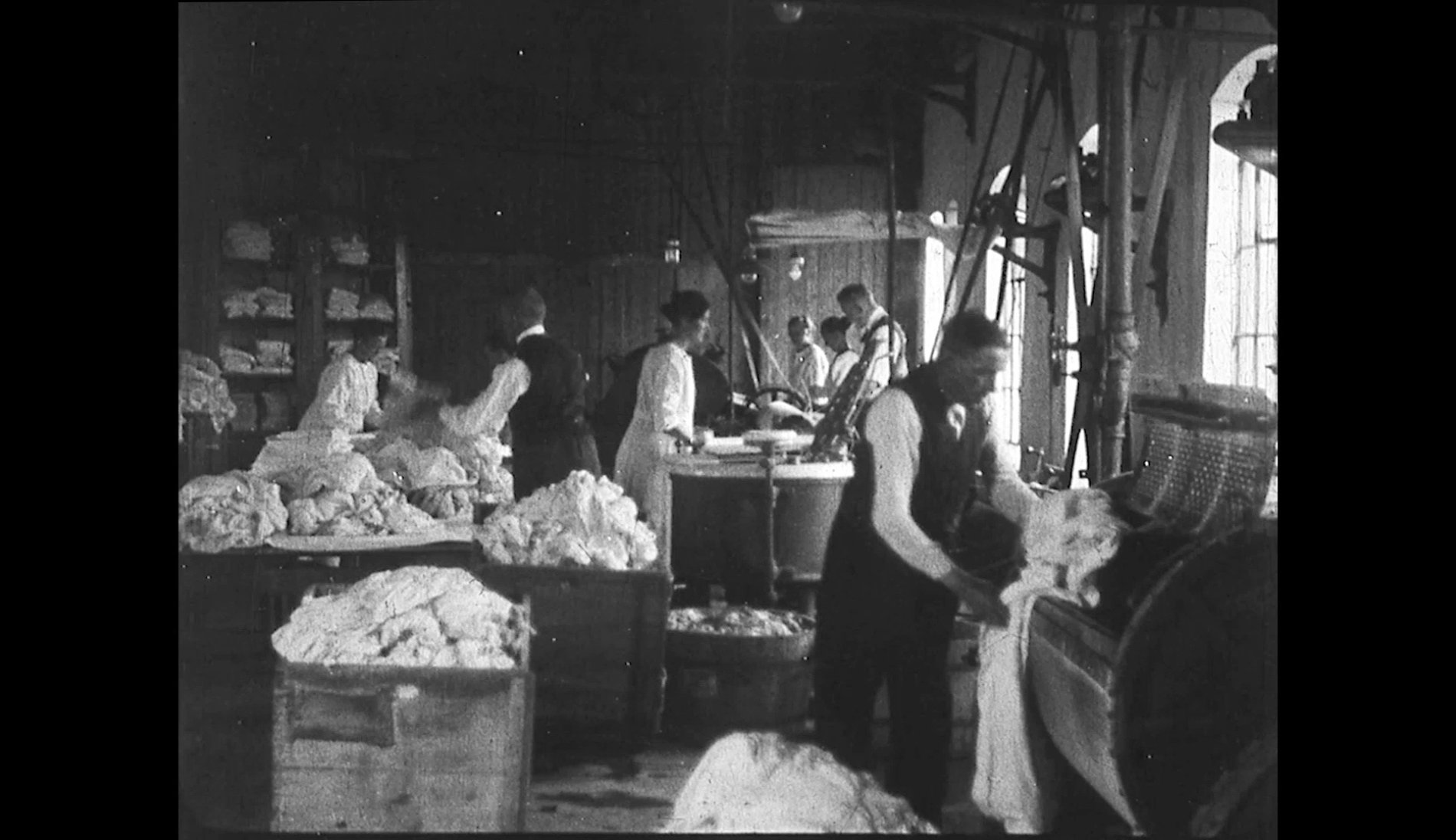
Founded in 1823 as a cloth factory in Ratzeburg, W. Marwitz Textilpflege is a family-owned company based in Lüneburg, specialising in rental workwear and textile services. Since 1972, the company has been part of the nationwide DBL network – an association of currently 24 medium-sized textile care companies with locations throughout Germany. With around 150 employees, W. Marwitz Textilpflege serves approximately 2,700 customers from Lüneburg and Bremerhaven to Soltau and Stendal. Its clients include bakeries, craft businesses, retail and hospitality companies, emergency services, as well as healthcare and industrial enterprises. Around 80,000 workwear items pass through the laundry every day.
